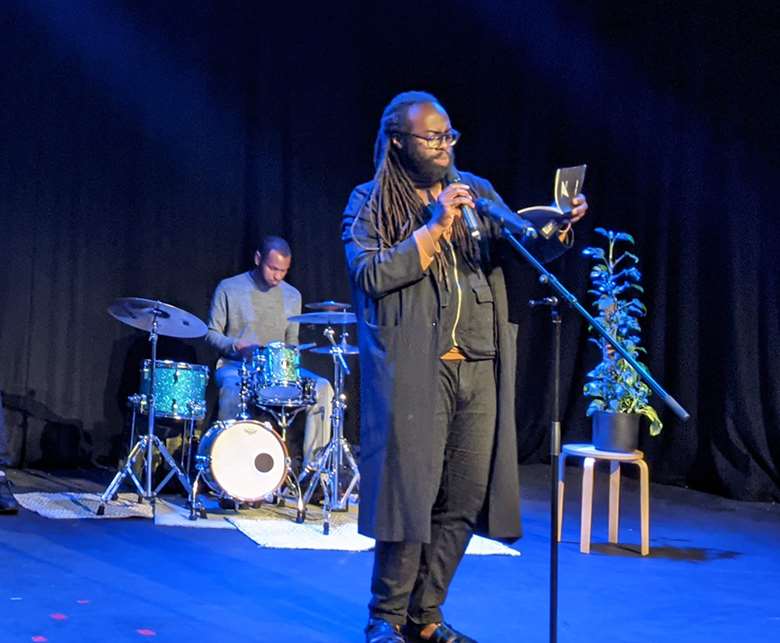Jazz and poetry unite at the return of Peckham’s Born::Free night
Saturday, September 4, 2021
Christine Hannigan reports back on a night peppered with “sensuous, psychedelic meditations” as south London's poetry community returns to live performance


Register now to continue reading

Thank you for visiting Jazzwise.co.uk. Sign up for a free account today to enjoy the following benefits:
- Free access to 3 subscriber-only articles per month
- Unlimited access to our news, live reviews and artist pages
- Free email newsletter